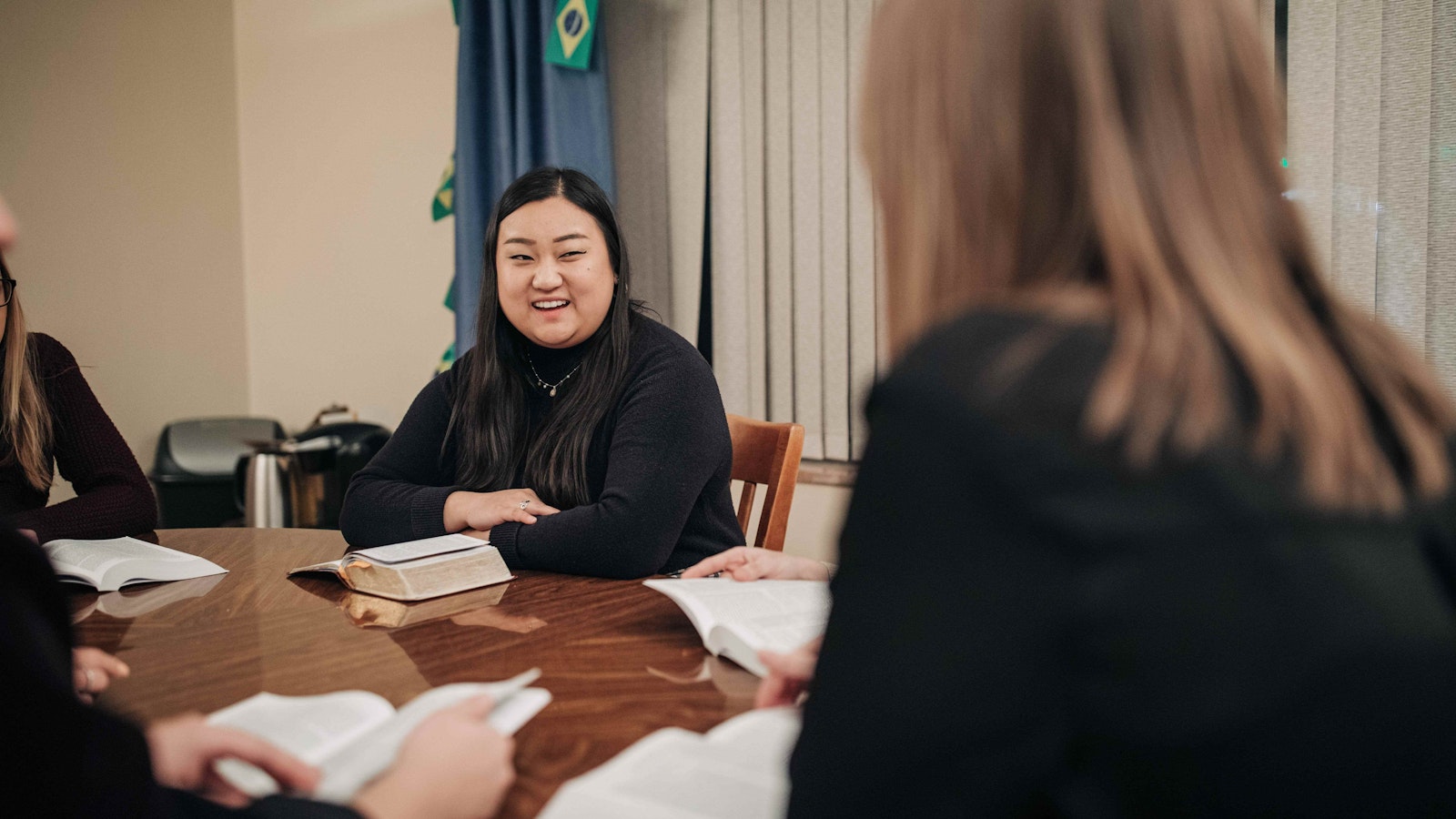
May is Asian Pacific American Heritage Month where we celebrate, in a special way, those who are part of these diverse and rich cultural communities. This month also provides the opportunity to look to the stories of Asian saints for examples of how best to accompany others today.
Take some time to read about three principles of accompaniment, Asian saints who demonstrated them, and how FOCUS Missionary, Anna Picasso, has experienced them in her own life.
Principle 1: Providing opportunities to encounter God, especially in ways that are culturally familiar, is essential.
Saint Story: St. Lucy Yi was born in 1815 in China. While she had a strong prayer life and had consecrated her life to God, a time of sickness when she was a young adult caused her to look at her spiritual life more seriously. She became more committed to the Lord, praying daily and working to support her family. She used part of her time to teach the faith to children nearby. Later in life she became a missionary.
Anna’s Story: My two brothers and I were adopted from South Korea and raised in Sioux Falls, South Dakota. Our parents made it clear we were a family in every sense. Mom filled our bookcases with Korean folktales and celebrated our "Gotcha Days” (the days we arrived home) like second birthdays. Dad enrolled us in taekwondo, to learn both the art and basic Korean. We'd seek out restaurants to try dishes like kimchi and kimbap. Most importantly, they gave us the greatest gift we could ever receive: our faith.
Despite my loving parents' efforts to build culture within our home, we were some of the few Asian children in our Catholic schools. I never had a teacher who looked like me. The saints in our churches didn’t reflect my dark hair, almond eyes, or wide nose. These things were likely situational and not inherently bad. But at a very early age, when the desire to be like everyone else is so pressing, I saw only what set me apart.
The cycle continued until my junior year when I discovered a collection of poems written by Asian Americans. This sparked something in me. Hearing their stories allowed me to take pride in where I came from for the first time. So much so that I wore a traditional hanbok (a Korean gown) for my senior photos.
St. Lucy Yi Zhenmei, pray for us.
Principle 2: We need to be intentional with our invitations to get to know people personally, understanding their needs, and how we can encourage them to grow closer to the Lord.
Saint Story: St. Paul Chong Hasang was born in Korea in 1795. His family was dedicated to the faith; his father wrote the first Catholic Catechism in the Korean language. His father was martyred for the faith and his family faced hardships, but Paul’s family never denied the faith. Throughout his life, he continually sought missionary support for the Church in Korea.
He went to China and invited the Bishop of Peking to send missionaries. He escorted Bishop Laurent Imbert on his mission and served him during this ministry. The bishop invited Paul to begin preparation for the priesthood. Persecution in the land prevented that from happening. Still, from prison, Paul wrote “A Letter to the Minister” defending the faith to the government. This work impressed many, including enemies of the Church.
Anna’s Story: The healing of my cultural insecurities was juxtaposed with a rejection of my faith. Ignorant behaviors and even slurs were directed at me within my school system. At the time, I was unable to separate individuals from the whole of the Church. I bring this to light, not to blame them, but to highlight the moral responsibility we have as representatives of Christ. Coupled with my doubts and failings, these experiences of rejection created within me an interior hardening against Catholicism.
By the sheer grace of God, I studied abroad in Rome during my time in college. Once I got back to the States, Courtney, a FOCUS missionary, walked with me in my pursuit of living a life of holiness. For the first time, someone desired to know the entirety of my person. The intentionality and love she showed me changed the trajectory of my life forever. I now serve with FOCUS in Detroit, sharing the hope and joy of the Gospel with college students.
St. Paul Chong Hasang, pray for us.
Principle 3: More than understanding, empathy and experiencing others’ cultures can help us appreciate where God is working in their lives, and journey with them.
Saint Story: Venerable Satoko Kitahara was born in Japan in 1929 to a wealthy aristocratic family, descended from samurai. After World War II, most of Japan was in ruins, including Satoko’s home. She met the Mercedarian Sisters and was drawn to their deep faith. She was baptized in 1949. She desired to join the religious order, but could not due to her poor health.
As a lay single person, Satoko dedicated her life to serving the poor of her community in an area known as the “Village of Ants,” where children and young people survived by collecting and selling garbage. She gave up her money and belongings to live among the people, teaching them to read, building a school, and working to provide clean living conditions for them.
Anna’s Story: An initiative called FOCUS 153 encourages missionaries to "go therefore and make disciples of ALL nations." This call is bestowed to all Catholics by the nature of our Baptism— we ought to desire to wholly encounter those in our lives, for the sake of making disciples of ALL nations. For many of the students I serve, that encounter includes them sharing their culture with me.
Last semester my student Camille, invited me to attend a celebration for St. Lorenzo Ruiz, a Filipino-Chinese martyr. I had some apprehension, but was quickly moved by the beauty of traditional attire and songs sung in Tagalog. I watched her perform the Tinikling, a famous dance as I ate chicken adobo.
At the core of that experience was celebrating something Camille had poured her heart into. Anytime we enter another person’s life more fully, including when we embrace their culture, we are invited to love as God loves. St. Paul says in 1 Corinthians 13, “For in one Spirit we were all baptized into one body, whether Jews or Greeks, slaves, or free persons, and we were all given to drink of one Spirit… If one part suffers, all the parts suffer with it; if one part is honored, all the parts share its joy.” We are all adopted into the universality of the covenantal family.
Venerable Satoko Kitahara, pray for us.
Let us use this month of May to recognize the cultural and faith experiences of not only the communion of saints, but also of those around us of Asian and Pacific Island heritage, recognizing the privilege and opportunities to accompany them on their faith journey.







